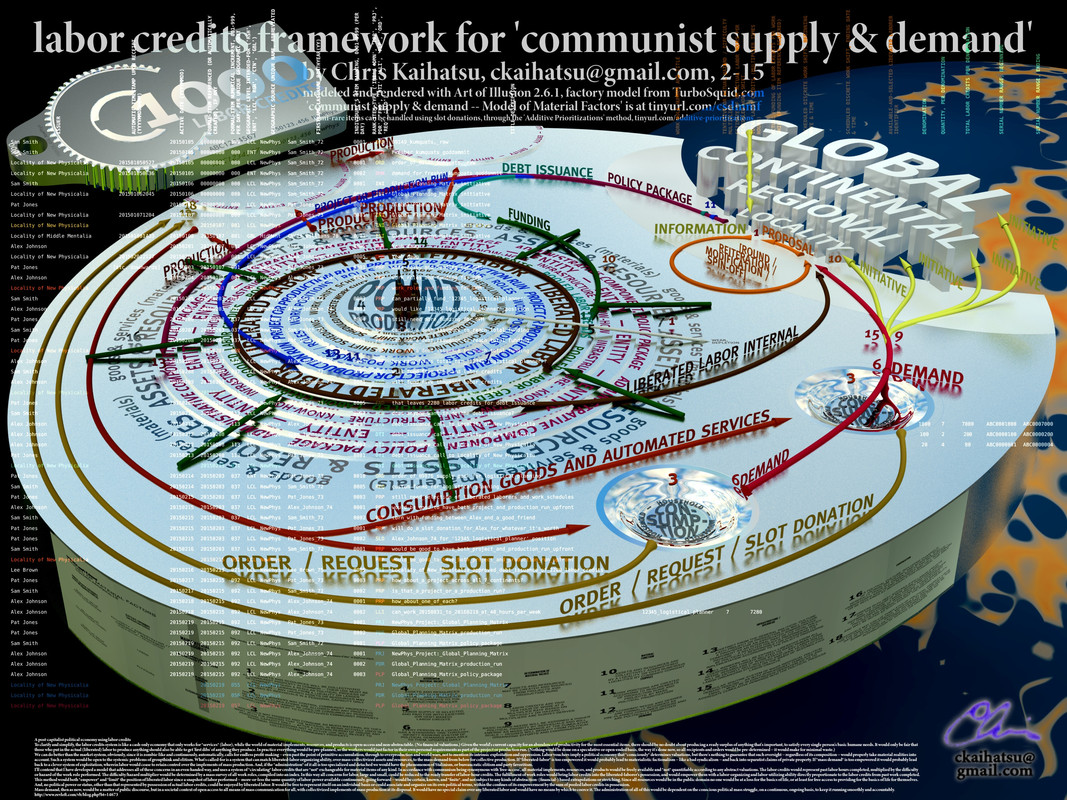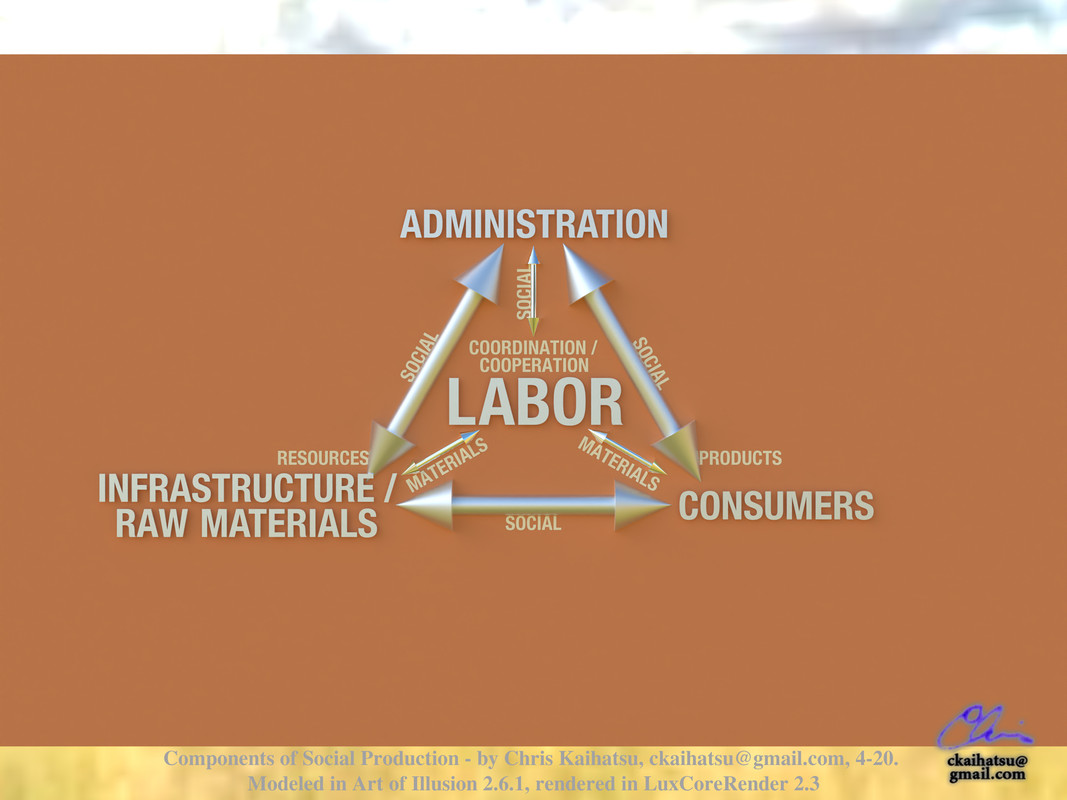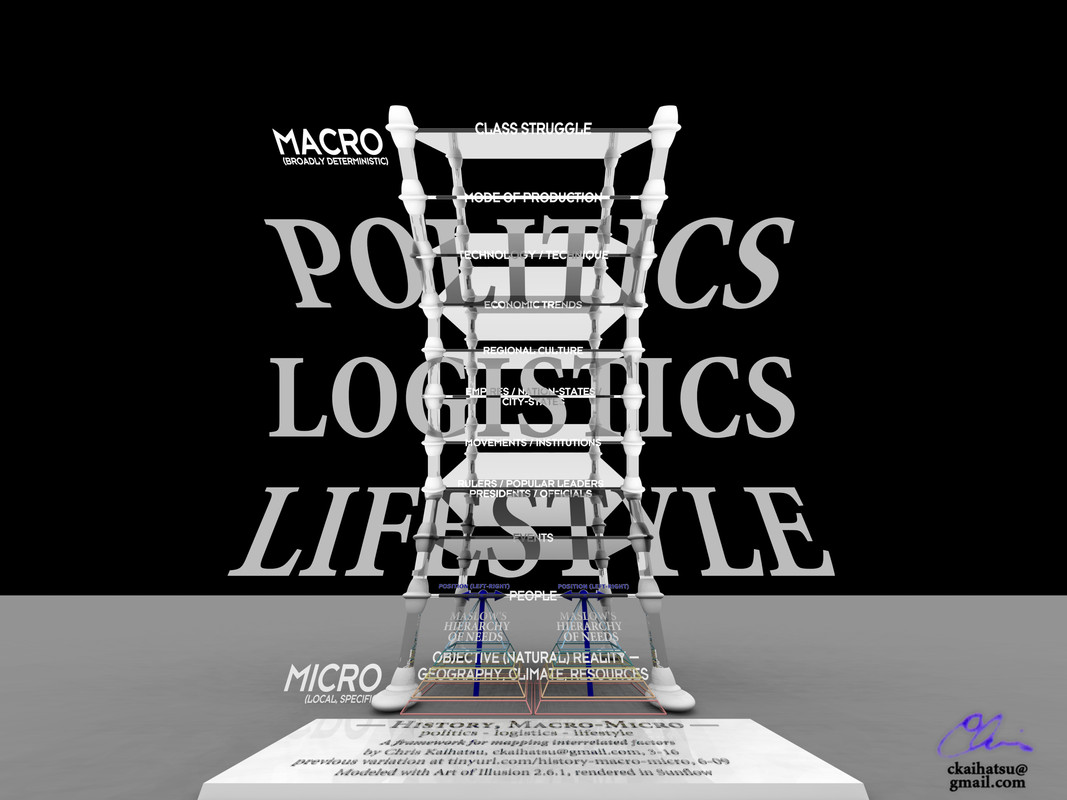Okay, please bear with me, everyone -- with TTP's prolonged silence over at the 'mingy little beasts' thread I've found my political time to be freeing up, and so I recently discovered the 'latest posts' thread listing at the bottom of each post. I'm now working my way into the PoFo forum at large....
Here are some select portions of posts from this thread that I'd like to respond to:
Patrickov wrote:
I think in general Member Rancid is right. However, there will probably be a lot of holes and traps.
Take the following as an example. I threw one of the said stock away despite holding it for almost two decades.
HSBC and Standard Chartered shares plunge after cancelling dividends, suspending buy-backs as coronavirus pandemic batters economies
https://www.scmp.com/business/banking-f ... -buy-backs
From recollection HSBC has been scandal-ridden lately, so it may not be the best example, or indicator, since it's so atypical.
---
Tainari88 wrote:
Let go under what conditions Annatar? That is the question. Puerto Ricans have been told for centuries that they are not capable of self rule and so on. Even though many small nations including Palau from the ex unincorporated territories list (that gained its independence from the USA gov't in 1993) is proof that islands can become independent and rule themselves.
People have to stop with the lies Annatar2014. Making excuses for the sellouts that are not valid. I studied the history of the Caribbean basin for years. All the islands have had colonial pasts in some form. But? The reality is that we can have incredibly great and advantageous relationships with each other and North, South and Central American nations. But the USA has to stop being bad second rate copy cats of all these horrific invading crazy empires from England (UK), Spain, Portugal, France, Holland, the USA...it is terrible. Just allow the Caribbean islands to be free and develop on their own and with being able to adopt interesting and good policies that favor their own interests. Not the ones who live thousands of miles away and don't care about the locals. It is not going to make things better.
One gets the sense that the U.S. cultivates its 'backyard' (imperialism) almost entirely for the sake of imperialist *social status*, since it's so materially self-sufficient otherwise.
Under the present system of world capitalism it's difficult to imagine independent-minded frameworks for such distinct landmasses as Puerto Rico, and the UK, etc. -- in the overall *productive*-economic global economy there's not much there, aside from perhaps *regional* (Stalinist-type) trading networks in the area / Caribbean, like Venezuela's 'ALBA' (if I recall correctly).
The inherent friction of politically separate (and even *separatist*) nation-states of all sizes, against the now-more-than-ever-before globally integrated world economy just points more intensely to the objective empirical need for a transition to *full socialism* so that the *political* component can be fully globalized as well, under workers control, to appropriately complement the already-globalized *economics* (and take it off of *commodity-production*, for exchange values, of course, in favor of producing to fulfill *human need*).
---
foxdemon wrote:
In my view the basic failure of ideologies such as communism and fascism is that there is no consideration of how leaders could be made accountable for what they do with their power. A political ideology must attempt to answer both questions of how to distribute resources and also how power is to be accountable. Only liberal democracy, amongst current ideologies originating from the enlightenment, makes a serious attempt at answering both.
It's a persistent *misnomer* that state regimes of communism and fascism failed due to their *inherent poltiical ideologies*. In the case of *fascism*, of course, it *should* fail, but Western governments have historically propped it up, as with allowing the Nazi rail lines to Jewish extermination camps, even though the Allied intelligence networks knew about it from early on, from overhead surveillance photographs. More recently would be the U.S.'s sponsorship of fascists in state power in Ukraine.
Regarding the misnamed 'communism' -- really *Stalinism* or the Stalinist idea of 'socialism-in-one-country' -- there was nothing to *do* internally in Russia in the '20s and '30s except to attempt to resuscitate the economy and industrialize, to catch up with the West / world, as quickly as possible, which is what Stalin *did*, in record time, but at a horrible human cost. I contend that the likes of a strongman figure like Stalin wouldn't have even *gotten* into power if it wasn't for the initial international imperialist *counterrevolution* fomented there by the Allies, that destroyed its economy, against the nascent soviet (workers councils) control of the economy after the overthrow of tsarism, in Russia.
Liberal democracy tends to *gloss over* these historical details / developments, to present a kind of *whitewashed*, bland, generic historical account, one which happens to *blame* and demonize non-Western-liberal-democratic governments and their best attempts to stay geopolitically anti-imperialist and 'independent' despite worldwide Western capitalist imperialist hegemony.
But, as Lenin insisted in January 1918, ‘Without the German Revolution we are ruined’. 78 The belief in international revolution was not a fantasy. The war had already led to upsurges of revolt similar to those in Russia, if on a considerably smaller scale—the mutinies of 1917 in the armies of France and Britain and in the German navy, a strike by 200,000 German metal workers against a cut in the bread ration, five days of fighting between workers and soldiers in Turin in August 1917, 79 illegal engineering and mining strikes in Britain, and a republican rising in Dublin during Easter 1916.
Harman, _People's History of the World_, pp. 424-425
The Allied intervention, striking simultaneously with the rebellion of the kulaks [rich peasants] and the collapse of the soviet alliance [with the Left Social Revolutionaries], poses an unmistakable threat to the survival of the republic. The proletarian dictatorship is forced to throw off its democratic paraphernalia forthwith. Famine and local anarchy compel a rigorous concentration of powers in the hands of the appropriate commissariats... Conspiracy compels the introduction of a powerful apparatus of internal defence. Assassinations, peasant risings and mortal danger compel the use of terror. The outlawing of the socialists of counter-revolution and the split with the anarchists and Left Social Revolutionaries have as their consequence the political monopoly of the Communist Party... Soviet institutions, beginning with the local soviets and ending with the Vee-Tsik [all-Russian executive] and the council of people’s commissars now function in a vacuum. 84
It was at this point that the revolutionary government turned, for the first time, to the systematic use of terror. The ‘White’ counter-revolutionaries had shown their willingness to shoot suspected revolutionaries out of hand. They had done so in October, as they fought to cling on to Moscow, and Whites in Finland had killed 23,000 ‘Reds’ after putting down a Social Democrat rising in January. 85 Now the revolutionaries felt they had no choice but to respond in kind. The shooting of suspected counter-revolutionaries, the taking of bourgeois hostages, the adoption of methods designed to strike fear into the heart of every opponent of the revolution now became an accepted part of revolutionary activity. Yet despite the impression created by works such as Solzhenitsyn’s Gulag Archipelago, the terror was very different from that employed by Stalin from 1929 onwards. It was a reaction to real, not imaginary, actions of counter-revolution and it ended in 1921 once the civil war was over.
Harman, _People's History of the World_, p. 428
---
foxdemon wrote:
So how will you hold those in power to account for their decisions? How will they be replaced when they screw up? Should they ruthlessly suppress any opposition when they fail to attend to the needs of the public and tenaciously cling to power regardless?
That seems to be how socialist systems work out. All because they depend on virtuous leaders who never fail. Alas, such people do not exist in the real world. So the lack of any system of accountability turns socially systems into dystopian social order, since there is nothing to prevent those who hold power turning not tyrants.
This is *stereotyping*, based on a particular playing-out of historical circumstances from the early 20th century. Socialism doesn't *call for* a Stalinist strongman-type hierarchical totalitarian structure -- rather it calls for 'All power to the soviets', meaning to the workers councils.
---
Tainari88 wrote:
Human beings are my favorite species. Not because of the parts in which they are destructive and selfish? But when they become these enhancers of life. when they adapt and get creative and inventive and flexible and original thinkers and artistic and scientific innovators and caring and dynamic and see how they fit into the scheme of things not to dominate, control and hate....but to yield, and give and love...and through that love and caring they make life great. It is the choice of our species. Something that animals can't do because animals are instinctual only creatures with underdeveloped front lobe stuff. The animals are naturally in harmony with the natural order. They are naturally adapted and their levels of conscious choice are limited. Humans have a tiny percentage that is incredibly powerful. It is about self internal freedom. A tiny bit of us is about freedom.
Not that I *glorify* animals, but I have to take some exception to your portrayal, Tainari. I think this particular depiction of human-vs.-animal nature is unwittingly *geneticist*, while leaving-out the *environmental* / 'nurture' aspect of life for either people or animals -- what, exactly *do* animals have to do within their default natural setting, among others like them, say, as in a rainforest?
Their conscious choice is limited by their *natural environment*, and not so much by brain capacity or function -- primates like monkeys and chimps do just fine in front of touchscreen computers, solving number puzzles and such things, and I have the suspicion that almost *all* animals could do similarly, provided with species-appropriate devices and interfaces.
---
blackjack21 wrote:
Communist means basically stripping people of their property and forcing them into poverty by force of arms while telling people it is for their own good, and that the people are being protected from capitalist oppressors. I'm not much interested in Marxian theories anymore. We have seen enough of it in practice to know that the "No True Scotsman" defense has worn thin.
This is more of the same -- you're buying into past Cold War propaganda, even though that whole cultural paradigm is *defunct* now.
Yes, Stalinist-type revisionist "communism" was just as patronizing and condescending as the U.S. continues to be, today. Much of the Cold War superpower showdown was just two different types of nationalist protection rackets operating parallel to each other, over their respective populations.
blackjack21 wrote:
Oh, I think people can clearly see that the virus hit Italy like a ton of bricks and Italy has a national health service. It's not Italy's fault. It's China's fault. However, you appear to be clearly pushing the CCP propaganda platform.
I'll accept that the coronavirus was *possibly* bio-engineered, and so it evades typical everyday medical and health approaches. You're *opportunistically* using this world event, though, to propagandize against any kind of nationalized / national single-payer-type healthcare approach, which is exactly the kind of structure that governments *have*, for acute domestic concerns like this one.
blackjack21 wrote:
Uh huh. Yet, if this came from the Wuhan virology lab, just as Chernobyl was a Soviet fuck up, when are you going to admit that these "communist" or "socialist" systems that are somehow non-compliant with utopian orthodoxy that if complied with would somehow deliver utopia/nirvana/whatever may actually be no more real than a unicorn vomiting rainbows?
This is a *distortion* of revolutionary leftist politics, though, since no socialist would claim that geographically-constrained *nation-states* are what the Communist Manifesto calls to implement.
There's no such thing as 'utopian orthodoxy' -- you're probably thinking of the modern *origins* of the socialist movement, which *began* with this kind of *idealizing*, in localist, commune-type ways.
---
jimjam wrote:
Social security and Medicare have given way to massive tax reductions and a general stacking of the deck for the top 1% - 10%.
blackjack21 wrote:
They have always been financed FICA payroll taxes, not some sort of means-tested progressive system. The reason isn't because they love taxing the poor. It's because political support for Social Security and Medicare collapses if it gets means-tested.
You're not even *addressing* jimjam's point, but rather are *sidestepping* it, showing that you'd prefer to *ignore* the dire civilizational dynamic of *income inequality*, or the class divide.
Social Security, Medicare, and *all* human-health / -welfare kinds of social services should be the *norm* for any modern industrialized economy these days, regardless of any comparatively *backward*, right-populist-type opinionating about it.
jimjam wrote:
A few trillion in tax reductions for billionaires is followed shortly by talk of "austerity" and the "unsustainability" of Social Security.
Yup -- it shows the class divide regarding government policies.
blackjack21 wrote:
You could confiscate all of Jeff Bezo's shares in Amazon, and it wouldn't do much to help Medicare expenses.
Maybe we should *do* it first, to confirm or disprove your 'clinical' hypothesizing.
Tainari88 wrote:
@foxdemon the problem I have with liberalism is a lack of ethics and a lack of consistency with regards to capitalism. For me? Cappies fail to acknowledge that having owners versus nonowners and having class- based systems will fail to prevent abuse and collapse. The system is innately flawed.
Yup -- it's practically ivory-tower thinking, that shines the spotlight on everything *except* the ivory tower.
blackjack21 wrote:
Yet we have already seen abuse and collapse of so-called "socialist" systems many times. You do not see the design flaw there? "It's not truly socialist/communist, because (insert excuse for failure here)."
The 'excuse' is what actually happened in history, which you'd rather gloss-over and ignore -- the historical downward slide of *revisionism*, from the initial Communist Manifesto goals, was due to *Western imperialist invasions* that threw the Bolshevik Revolution off-track.
---
blackjack21 wrote:
China is industrialist, run by a communist party.
They *call* themselves 'communist', but they're actually revisionist, or *Stalinists*.
Political Spectrum, Simplified
---
late:]
4) I couldn't find anyone advocating that much crazy. China holds onto a ton of American money. Cut all trade, and they dump dollars. Do you have any idea what that would do?[/quote]
[quote="blackjack21 wrote:
Not necessarily. If they dump dollars, they destroy the competitiveness of their export markets.
Your type, BJ, would typically be making the *economic*-sided argument of 'free-markets', but when it comes to the *real world*, you're suddenly national-chauvinist, *politically*, favoring the foreign retention of U.S. dollars, and making up bullshit to cover for why China *shouldn't* dump dollars.
---
SolarCross wrote:
IMHO the issue with China is not so much the involvement of the government in the economy but in the philosophy of that government and their basically hostile intentions towards anyone who is not them which happens to include the better part of their own populace. It would be better if their economics were less like ours and more like that of Mao if only because the economic trainwreck that is Maoism made the CPC LESS of a threat because economic power precedes military power. The problem with China is that it is ruled by the CPC not that it is somewhere on the "mixed economy" spectrum. The CPC is strengthened by its mixed economy.
Mao was successful at being anti-imperialist, and he / China deserves a lot of credit for that alone, since few other countries were able to resist Western colonization while also internally industrializing at the same time. Mao's *economics* were highly *politicized*, and were aimed at the *agriculture* sector, instead of at the industrial sector, which, predictably, became a train-wreck, unfortunately.
At this point, the U.S. and other plutocratic Western countries can't claim to be any more 'democratic' than China's CPC, so I don't think there's a hell of a lot of difference there (see the 2000 U.S. presidential election). Whether the governance is plutocratic or bureaucratic-elitist is a toss-up, really, since both are ultimately *ruling class*.
---
SolarCross wrote:
Communism = One party totalitarian autocracy. The CPC (the clue is in the name) are still communists, just because they are using capitalism to strengthen themselves does not make them less communist. We were fools to think otherwise.
I think everyone here can probably agree on the term 'bureaucratic elitism' -- again, not what The Communist Manifesto describes as the political end-goal.
---
blackjack21 wrote:
Exactly. Communism needs to finally be placed on the ash heap of history along with the reputations of the people who proposed free trade with China.
This again is conveniently ignoring the *economics* of it, which has been, until recently, the dirt-cheap price of China's labor -- ever hear the term 'the workshop to the world'?
---
late wrote:
Yes, dumping their dollars would hurt China, as well as America. But cutting off all trade would be a disaster for China. It's the only counter-move they would have, and they would use it.
They don't get their oil from the USA, last time I looked, they were getting it from the ME. They could, and prob would, use those dollars to buy long term contracts. They have a good relationship with the Saudi.
Patrickov wrote:
I mean the United States still controls transport of oil around the world, not necessarily that they are primary supplier. Besides, I heard that refining technology and capacity are both very important matter too. Assuming these are true (sorry I did not bother to find proof), these are what US Dollar credibility is based on. Until all these having alternatives, dumping US dollar will not hurt the US at all.
late wrote:
Dollars are the reserve currency, which means other countries hold a lot of dollars. If China were to dump enough dollars, it would likely start a panic sell off of dollars.
Everyone would dump their dollars, which would instantly end our status as the reserve currency.
This would be very bad for the United States.
China doesn't want to go there, and we certainly don't want them to go there. But the stakes are really quite high.
My understanding is that the U.S.'s economic strength is in having the U.S. dollar as the world's reserve currency, and also in its militaristic global 'protection racket' to the countries of the world that are its 'clients' / participants (the past 'Coalition of the Willing', etc.).






 ) this year, the Congressional Budget Office said in a grim projection Friday. CBO expects real GDP to plummet by 11.8 percent in the second quarter. Overall, the economy is expected to shrink by 5.6 percent in 2020, before growing by 2.8 percent next year.
) this year, the Congressional Budget Office said in a grim projection Friday. CBO expects real GDP to plummet by 11.8 percent in the second quarter. Overall, the economy is expected to shrink by 5.6 percent in 2020, before growing by 2.8 percent next year. Time for another tax cut for billionaires ….. it'll "trickle down" and solve all our problems
Time for another tax cut for billionaires ….. it'll "trickle down" and solve all our problems  .
.








 - By Tainari88
- By Tainari88 - By wat0n
- By wat0n